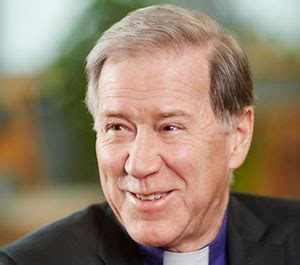Easter isn’t about bunnies, eggs and chocolate: it’s about gun control. According to Bishop Melissa Skelton’s Easter message, at least:
As I write this, snow is on the ground covering the many crocuses and snowdrops that were just popping up last week to remind us that spring is indeed on the way. Also as I write this, almost two weeks have passed since the deadly shooting at a school in Florida in which young people and teachers lost their lives.
It’s hard to know sometimes how much news from the US affects us here in Canada, and given the fact that I was born in the US, I don’t always trust my instincts on such things. But as the news about the shootings in Florida spread, once again, Canadian after Canadian wanted to talk with me about it, about their perplexity at a society where access to guns, especially assault weapons, is so easy. And they wanted to talk to me about their amazement and awe at the young survivors of the shooting who overnight began speaking up and demanding stricter gun laws.
I don’t pretend to know much about guns nor am I particularly interested in them, but I am reasonably certain that “assault weapon” is a slippery term whose definition varies depending on who is using it: after all, a kitchen knife is an “assault weapon” if it is used to stab someone. Still, we mustn’t be too hard on Skelton because she is an Anglican bishop with years of seminary training in Biblical slipperiness to confuse her thinking.
Here is a list of assault rifles – a more precise term – and they are not easy to obtain:
The US Army defines an assault rifle as follows:
“Assault rifles are short, compact, selective-fire weapons that fire a cartridge intermediate in power between submachinegun and rifle cartridges. Assault rifles have mild recoil characteristics and, because of this, are capable of delivering effective full-automatic fire at ranges up to 300 meters.”
Small Arms Identification and Operations Guide – Eurasian Communist Countries, pg 100 para 90
Real assault rifles are capable of automatic firing. Therefore, they are regulated by the federal government as machine guns under the Federal Firearms Act of 1934 and the completely misnamed Firearm Owners’ Protection Act of 1986. The Firearm Owners’ Protection Act entirely banned the new manufacture or importation of automatic weapons for civilian use. That left roughly 150,000 registered automatic weapons in private ownership and eligible for transfer between individuals. The transfer of such weapons is handled by the ATF’s NFA branch. Basically, anyone wanting to legally own a fully automatic weapon needs $15,000 to over $40,000 to buy a weapon from an already licensed owner willing to sell one of theirs, plus pay a $200 federal transfer tax, plus pass a background investigation of National Agency Check with 10-point fingerprinting.


 What is remarkably notable in the aftermath of this recent shooting in Florida is the tremendous resilience of the young people in standing up and speaking out with grave concern for the gun violence that is tearing apart families and communities. While some people note that many of the shooters have serious mental health issues or have links with terrorist groups, and that needs to be acknowledged, many others are asking deeper questions about “the gun culture” across the United States. Some question an all-or-nothing approach to the Second Amendment in an age of automatic weapons. Some question why many Americans so vehemently defend that right. Some question the measures around gun control and the extent to which they can be enforced. Some question access to semi-automatic weapons that can fire dozens of rounds within seconds.
What is remarkably notable in the aftermath of this recent shooting in Florida is the tremendous resilience of the young people in standing up and speaking out with grave concern for the gun violence that is tearing apart families and communities. While some people note that many of the shooters have serious mental health issues or have links with terrorist groups, and that needs to be acknowledged, many others are asking deeper questions about “the gun culture” across the United States. Some question an all-or-nothing approach to the Second Amendment in an age of automatic weapons. Some question why many Americans so vehemently defend that right. Some question the measures around gun control and the extent to which they can be enforced. Some question access to semi-automatic weapons that can fire dozens of rounds within seconds.